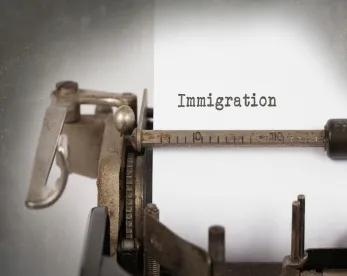The EB-5 Program is a complicated decision that requires much thought, diligence, and preparation. In light of this, it is important for an investor to know their rights. With recent headlines highlighting the problems with some EB-5 projects, it is important for a potential investor to know that the EB-5 program does work and is a viable path to permanent residence. Since 2008, the EB-5 program has represented over $14.6 billion in foreign direct investment in to the U.S. By virtue of making these investments, the EB-5 program has resulted in permanent residence for thousands of investors and their family members from all over the world. These green cards enable applicants to live and work in the United States, to travel freely outside the country, and to enjoy all of the rights and benefits of being a green card holder in the United States.
However, making an investment is an important decision that the investor and their family members should make after careful consideration. As part of making that decision, it is critical to conduct careful and extensive research into the project being considered for investment the Regional Center administering the EB-5 program, and the foreign agent, where applicable, for their track records of success, their experience in the industry, and their compliance with all legal requirements.
Specifically, as it relates to the project, the investor has the right to review all the documents in conducting due diligence. Accordingly, investors should review the business plan, economic report, construction timeline, and market study, to understand supply and demand figures, estimated job creation, anticipated exit strategies, and other basic principles of the investment.
Of particular importance is to review the private placement memorandum (the PPM). The PPM is a summary of the material aspects of the investment, including the operating and subscription agreements, among others, and is the only document which outlines all the risks of the investment. While the PPM may be legally dense and lengthy, sometimes close to 100 pages, it is the most important document investors will review in identifying the project for their EB-5 investment. Those interested in pursuing the path to permanent residence via EB-5 must understand that, as investors, they have the complete right to ask questions and conduct their own due diligence in deciding whether a specific project is suitable for investment.
In fact, in today’s market, thorough due diligence is perhaps the most critical element in preparation to pursue permanent residence through EB-5. Beyond the review of documents as described above, an investor will want to be sure that the project has a management team and developer with a substantive track record of success as well as adequate capital to complete the project. Additionally, it is important to make sure that the entire project professional team is intimately familiar with the EB-5 landscape, and exhibits the highest integrity. It is important to ensure that the written materials you receive are consistent with any verbal discussions potential investors may have had with principals of an investment or their agents.
In conducting the due diligence process, potential EB-5 investors can use the following questions:
-
When was the Regional Center approved by USCIS, and has it gone through any amendments?
-
Has the Regional Center received any Form I-924 denials?
-
Has the Regional Center ever received a Notice of Intent to Terminate? If yes, what is the current status of its designation?
-
Has the Regional Center maintained its annual compliance filings with USCIS known as the I-924A?
-
Has the Regional Center ever been the subject of an SEC investigation or review?
-
IS the Regional Center a licensed broker/ dealer or working with one?
-
What are the Regional Center’s or project principal’s successes with similar developments?
-
What is the Regional Center’s success rate with Form I-526 and Form I-829s?
-
What is the Project’s success rate with Form I-526s?
-
Has the Project received an exemplar project pre-approval from the USCIS?
-
Does the investment use an escrow account and if so, what are the release provisions?
-
Is the full investment amount refunded if the Form I-526 is denied?
-
Is the administrative fee or any other fees other than the investment amount refunded if the Form I-526 denied?
-
Has an action for securities violations and/or fraud ever been filed against the Project, or any of the individual’s involvement in the management and operation of those entities?
-
Have any of the Regional Center or Project principals ever been involved in a criminal proceeding?
Lastly, investors should feel free to consult with their own advisers as to the financial, tax, legal, accounting, regulatory, and any other matters, and understand the financial, tax, legal, accounting, regulatory, and related consequences of that investment. Having conducted proper due diligence, investors will likely be able to rest easier after making their investment decision.





 />i
/>i

